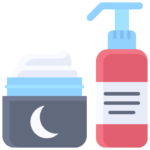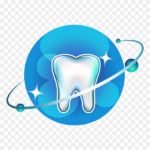In recent years, the field of psychodermatology has emerged as a fascinating area of research, exploring the intricate relationship between the mind and skin health. This interdisciplinary branch combines elements of dermatology, psychiatry, and psychology to understand how mental health conditions such as depression and anxiety impact skin and hair health at both the physiological and molecular levels.

The Mind-Skin Connection
The connection between mental health and skin conditions is bidirectional and complex. Psychological stress can exacerbate skin conditions, while chronic skin issues can lead to significant psychological distress. Depression and anxiety are particularly influential in this dynamic, often triggering or worsening dermatological problems such as acne, eczema, psoriasis, and hair loss.

Molecular Mechanisms at Play
At the molecular level, several key mechanisms explain how depression and anxiety affect skin and hair health:
1. Hypothalamic-Pituitary-Adrenal (HPA) Axis Activation:
Stress Response: When an individual experiences stress or anxiety, the body activates the HPA axis, leading to the release of cortisol, a stress hormone. Elevated cortisol levels can disrupt skin homeostasis, leading to increased sebum production, inflammation, and impaired skin barrier function.
Inflammatory Pathways: Cortisol also promotes the release of pro-inflammatory cytokines such as interleukin-6 (IL-6) and tumor necrosis factor-alpha (TNF-α), which contribute to skin inflammation and exacerbate conditions like psoriasis and eczema.
2. Neuropeptides and Neurotransmitters:
Substance P: Stress increases the levels of neuropeptides like Substance P, which can stimulate mast cells in the skin to release histamine and other inflammatory mediators, leading to itching and dermatitis.
Serotonin: Reduced levels of serotonin, commonly associated with depression, have been linked to increased pain perception and itching, aggravating chronic skin conditions.
3. Immune System Dysregulation:
Chronic Inflammation: Depression and anxiety are associated with chronic low-grade inflammation. This persistent inflammatory state can alter the skin’s immune response, making it more susceptible to infections and slower to heal.
Autoimmune Reactions: Stress can trigger or worsen autoimmune skin disorders such as alopecia areata and vitiligo by affecting regulatory T-cell function and promoting autoimmune reactions against skin and hair follicles.
4. Oxidative Stress:
Psychological stress leads to the production of reactive oxygen species (ROS), which cause oxidative damage to skin cells. This oxidative stress can accelerate aging, promote hyperpigmentation, and impair the skin’s natural repair mechanisms.
Impact on Hair Health

The effects of depression and anxiety on hair health are similarly profound:
Telogen Effluvium: Stress can shift hair follicles from the growth phase (anagen) to the resting phase (telogen), leading to increased hair shedding and thinning.
Alopecia Areata: The immune dysregulation caused by stress can trigger alopecia areata, an autoimmune condition where the immune system attacks hair follicles, leading to patchy hair loss.
Hair Growth Cycle Disruption: Chronic stress can disrupt the normal hair growth cycle by altering the expression of growth factors and cytokines involved in hair follicle cycling.
Therapeutic Approaches
Addressing the psychological aspects of skin and hair disorders is crucial for effective treatment. Integrative approaches that combine dermatological treatments with psychological interventions can be particularly beneficial. Strategies include:
Cognitive Behavioral Therapy (CBT): CBT helps patients manage stress, anxiety, and depression, which can lead to improvements in skin conditions.
Mindfulness and Relaxation Techniques: Practices such as mindfulness meditation, yoga, and deep-breathing exercises can reduce stress levels and subsequently alleviate skin symptoms.
Pharmacotherapy: Antidepressants and anxiolytics can help manage the psychological aspects of skin conditions, though they must be prescribed and monitored carefully due to potential side effects on the skin.
Increasing the secretion of serotonin, endorphins, oxytocin, and dopamine, often referred to as the “feel-good” hormones and neurotransmitters, can be achieved through various lifestyle changes and activities. Here are some effective ways to boost each:
Serotonin
- Diet: Consuming foods rich in tryptophan (like turkey, eggs, cheese, nuts, and seeds) can help increase serotonin levels. Carbohydrates can also boost serotonin by helping tryptophan enter the brain.
- Sunlight: Exposure to sunlight can help increase serotonin levels. Aim for at least 20-30 minutes of sunlight exposure daily.
- Exercise: Regular physical activity, especially aerobic exercises like running, swimming, or cycling, can boost serotonin production.
- Meditation and Mindfulness: Practices like meditation, yoga, and mindfulness can increase serotonin levels and improve mood.

Endorphins
- Exercise: High-intensity workouts, such as running, dancing, or strength training, can trigger endorphin release, often referred to as a “runner’s high.”
- Laughter: Engaging in activities that make you laugh, such as watching a comedy show or spending time with friends, can boost endorphin levels.
- Music: Listening to your favorite music can stimulate endorphin production.
- Massage and Acupuncture: Both massage therapy and acupuncture can help release endorphins and reduce pain.

Oxytocin
- Physical Touch: Hugging, kissing, cuddling, and even holding hands can increase oxytocin levels. Physical touch from loved ones is particularly effective.
- Social Bonding: Engaging in meaningful social interactions and activities that involve trust and connection, such as spending quality time with family and friends.
- Acts of Kindness: Performing acts of kindness and generosity can increase oxytocin.
- Pets: Spending time with pets and engaging in pet therapy can boost oxytocin.

Dopamine
- Achievements: Setting and achieving small goals can provide a dopamine boost. This can be as simple as completing a task or learning something new.
- Diet: Foods rich in tyrosine, such as almonds, avocados, bananas, dairy, and poultry, can help increase dopamine production.
- Exercise: Regular physical activity also helps increase dopamine levels.
- Music: Listening to music you enjoy can release dopamine.
- Sleep: Ensuring adequate and quality sleep is crucial for maintaining optimal dopamine levels.

General Tips for Boosting Feel-Good Hormones
- Healthy Diet: Eating a balanced diet rich in vitamins, minerals, and antioxidants supports overall brain health and hormone production.
- Stress Management: Reducing stress through techniques like meditation, deep breathing exercises, and yoga can enhance the production of feel-good hormones.
- Hydration: Staying well-hydrated is important for overall brain function and hormone production.
- Positive Social Interactions: Maintaining strong social connections and having supportive relationships contribute to the secretion of these hormones.
By incorporating these activities and lifestyle changes into your daily routine, you can naturally boost your levels of serotonin, endorphins, oxytocin, and dopamine, leading to improved mood and overall well-being.

Conclusion
The burgeoning field of psychodermatology underscores the importance of a holistic approach to treating skin and hair conditions. By understanding the molecular mechanisms linking mental health to dermatological health, healthcare providers can develop more effective, integrative treatment plans that address both the mind and the skin. As research in this area continues to evolve, it holds the promise of better outcomes for patients suffering from the intertwined effects of psychological and dermatological disorders.
References:
- American Academy of Family Physicians. (n.d.). Psychodermatology: The mind and skin connection. Retrieved from https://www.aafp.org
2. Psychiatric Times. (n.d.). Psychodermatology: When the mind and skin interact. Retrieved from https://www.psychiatrictimes.com
3. American Psychological Association. (2015). How stress affects skin. Retrieved from https://www.apa.org/monitor/2015/02/cover-skin






